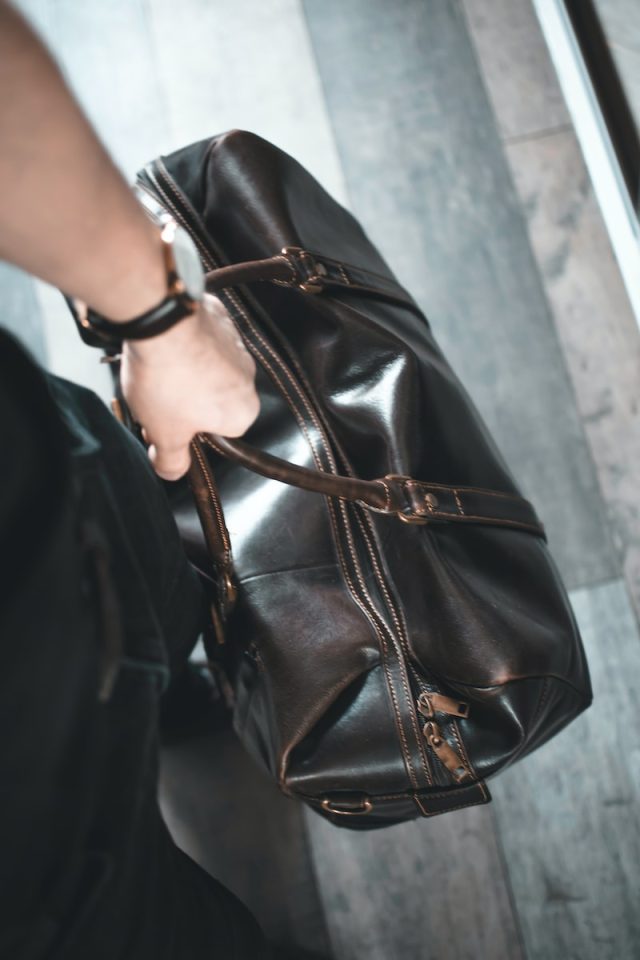Traveling is an exciting experience that allows you to explore new places, cultures and make unforgettable memories. However, it can also pose some risks, especially when it comes to protecting your personal information and valuables. Whether you’re traveling for business or leisure, it’s important to take steps to safeguard your belongings and sensitive data. In this blog, we’ll explore some essential tips and tricks that can help you keep your personal information and valuables secure while traveling. From packing smart to staying alert, we’ll cover everything you need to know to ensure a worry-free trip. So, if you’re planning your next adventure, read on to learn how to protect yourself and your possessions on the road.
Traveling & Personal Safety
Traveling is an exciting and enriching experience, but it’s important to prioritize personal safety while exploring new destinations. Whether you’re traveling solo or in a group, there are several things you can do to ensure your safety and minimize the risk of danger. Here are some essential tips to help you stay safe while traveling:
- Research Your Destination: Before you travel, research your destination thoroughly. Familiarize yourself with the local customs, laws, and any safety concerns. This information can help you avoid potential risks and stay safe while exploring.
- Stay Aware of Your Surroundings: When traveling, it’s important to always be aware of your surroundings. Avoid distractions like your phone or headphones, and be alert to any suspicious behavior or activity.
- Use Reliable Transportation: If you’re using public transportation, choose reputable companies and avoid traveling alone at night. Opt for licensed taxis or ride-sharing services like Uber or Lyft.
- Keep Your Valuables Safe: Keep your valuables like your passport, cash, and credit cards in a secure place, such as a hotel, safe. Avoid carrying large amounts of cash, and be cautious when using ATMs.
- Share Your Itinerary: Share your travel plans and itinerary with a trusted friend or family member. Check-in with them regularly and let them know of any changes to your plans.
- Learn Basic Self-Defense: Learning basic self-defense can help you feel more confident and prepared in case of an emergency. Consider taking a self-defense class before your trip.
- Trust Your Gut: If a situation feels uncomfortable or unsafe, trust your instincts and remove yourself from the situation. It’s better to be cautious and safe than to take unnecessary risks.
By following these safety tips, you can ensure a safe and enjoyable travel experience. Remember to prioritize your safety, stay vigilant, and be prepared for any situation that may arise.
Safely Storing Valuables
When traveling, it’s essential to keep your valuables safe and secure. Whether it’s your passport, cash, or other valuable items, losing or having them stolen can be a nightmare. Here are some tips for safely storing your valuables while traveling.
- Use a hotel safe – Most hotels have a safe in the room or at the front desk. Using this safe to store your valuables when you’re not using them is a good idea. Choose a secure combination, and don’t forget to lock the safe after use.
- Keep valuables with you – When traveling, it’s always best to keep your valuables with you at all times. Don’t leave them in your checked luggage or unattended in your hotel room. Consider using a money belt or a hidden pocket to keep your valuables close to you.
- Use a portable safe – If you’re traveling with valuable items, such as expensive jewelry or electronics, consider using a portable safe. These safes are designed to be lightweight and easy to carry around. They can also be secured to a fixed object, such as a bed frame or a closet rod.
- Split your valuables – Don’t keep all your valuables in one place. Split your cash, credit cards, and other valuable items between different locations, such as your wallet, money belt, and backpack. This way, if one item is lost or stolen, you still have other valuables to fall back on.
- Consider insurance – Finally, consider purchasing travel insurance that covers lost or stolen items. This can give you peace of mind knowing that you can recoup the value of your lost or stolen items.
By following these tips, you can ensure that your valuables are safe and secure while traveling. Always be aware of your surroundings and take necessary precautions to protect your belongings.
Protecting Personal Information
In today’s digital age, protecting personal information has become more critical than ever, especially when traveling. Hackers and identity thieves can target travelers who are often more vulnerable to these types of crimes. Here are some tips to help you protect your personal information while traveling.
- Use a VPN – A virtual private network (VPN) encrypts your internet connection, making it more difficult for hackers to intercept your data. When traveling, consider using a VPN to protect your online activity, especially when using public Wi-Fi networks.
- Be cautious with public Wi-Fi – Public Wi-Fi networks can be convenient but are also very insecure. Hackers can easily intercept data transmitted over these networks. When using public Wi-Fi, avoid accessing sensitive information, such as online banking or credit card accounts. Instead, use your phone’s data plan or a VPN.
- Avoid oversharing on social media – Posting photos and updates about your travel itinerary on social media can be tempting, but it can also make you more vulnerable to theft. Avoid sharing too much information about your travel plans; never post your location in real-time.
- Use a password manager – Keeping track of multiple passwords can be challenging, especially when traveling. Consider using a password manager to store your login information securely.
- Protect physical documents – Carry only essential documents with you when traveling, such as your passport and travel itinerary. Keep them in a secure location, such as a hotel safe, when not in use. Avoid leaving important documents, such as boarding passes or hotel receipts, lying around in public places.
Following these tips can protect your personal information and minimize identity theft risk while traveling. Always be vigilant and take necessary precautions to keep your information secure.
Reducing Risk at Accommodations
When traveling, your choice of accommodation can significantly impact your overall experience. While most hotels and other accommodations are safe and secure, there are still some risks to be aware of. Here are some tips for reducing risk at accommodations when traveling.
- Choose a reputable accommodation – Do your research and choose a reputable accommodation with good reviews. This can help reduce the risk of staying at an unsafe or poorly managed property.
- Check the locks and security features – When you arrive at your accommodation, check the locks and security features, such as the deadbolts, chains, and peepholes. If something looks insecure, request a room change or speak to the hotel staff about the issue.
- Keep your room key secure – Don’t leave your room key lying around in public places. Keep it in a secure location, such as your wallet or money belt.
- Be aware of your surroundings – Pay attention to your surroundings and report any suspicious activity to the hotel staff or local authorities.
- Use caution with in-room amenities – Be cautious when using in-room amenities, such as the minibar or coffee maker. Check for signs of tampering or unauthorized access.
- Lock up your luggage – If you’re leaving it in your room, lock it up and keep it out of sight.
Following these tips can reduce the risk of encountering safety issues or theft at your accommodation when traveling. Always be aware of your surroundings and take necessary precautions to keep yourself and your belongings safe.
Conclusion: Taking Precautions
Taking precautions when traveling is crucial for ensuring your safety and security. Whether it’s protecting your personal information, storing valuables, or reducing risks at accommodations, there are steps you can take to minimize the risk of theft, fraud, and other safety issues.
Remember to research and choose reputable accommodations, use hotel safes, and be aware of your surroundings. Use a VPN when accessing the internet, and avoid oversharing personal information on social media. When storing valuables, split them up and keep them in different locations, and consider purchasing travel insurance to protect your belongings.
By taking these precautions, you can enjoy your travels with greater peace of mind, knowing you’ve taken steps to reduce the risk of safety issues and theft. Don’t let concerns over safety and security hold you back from traveling and exploring the world. With the proper precautions, you can enjoy your travels to the fullest.






























